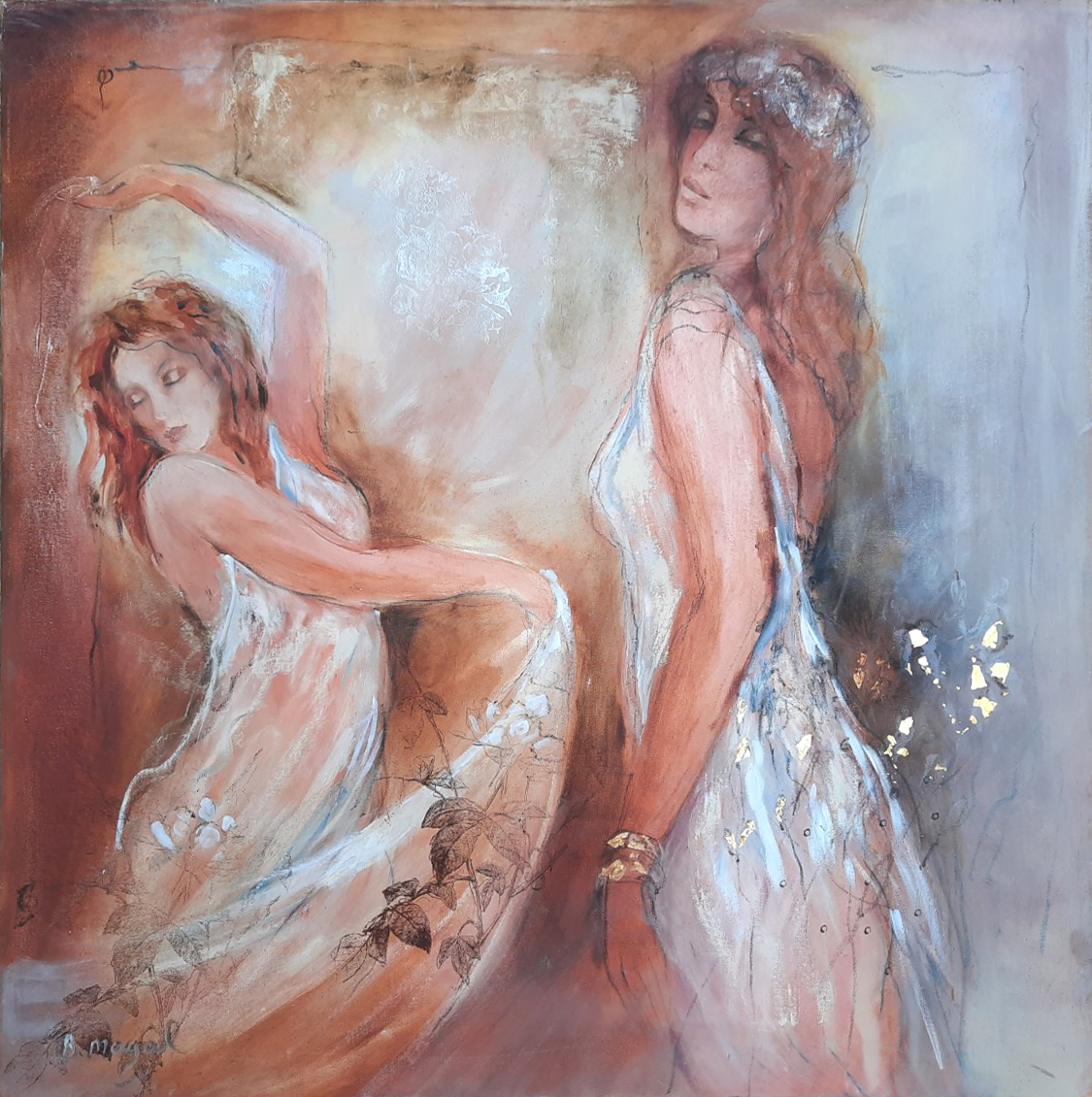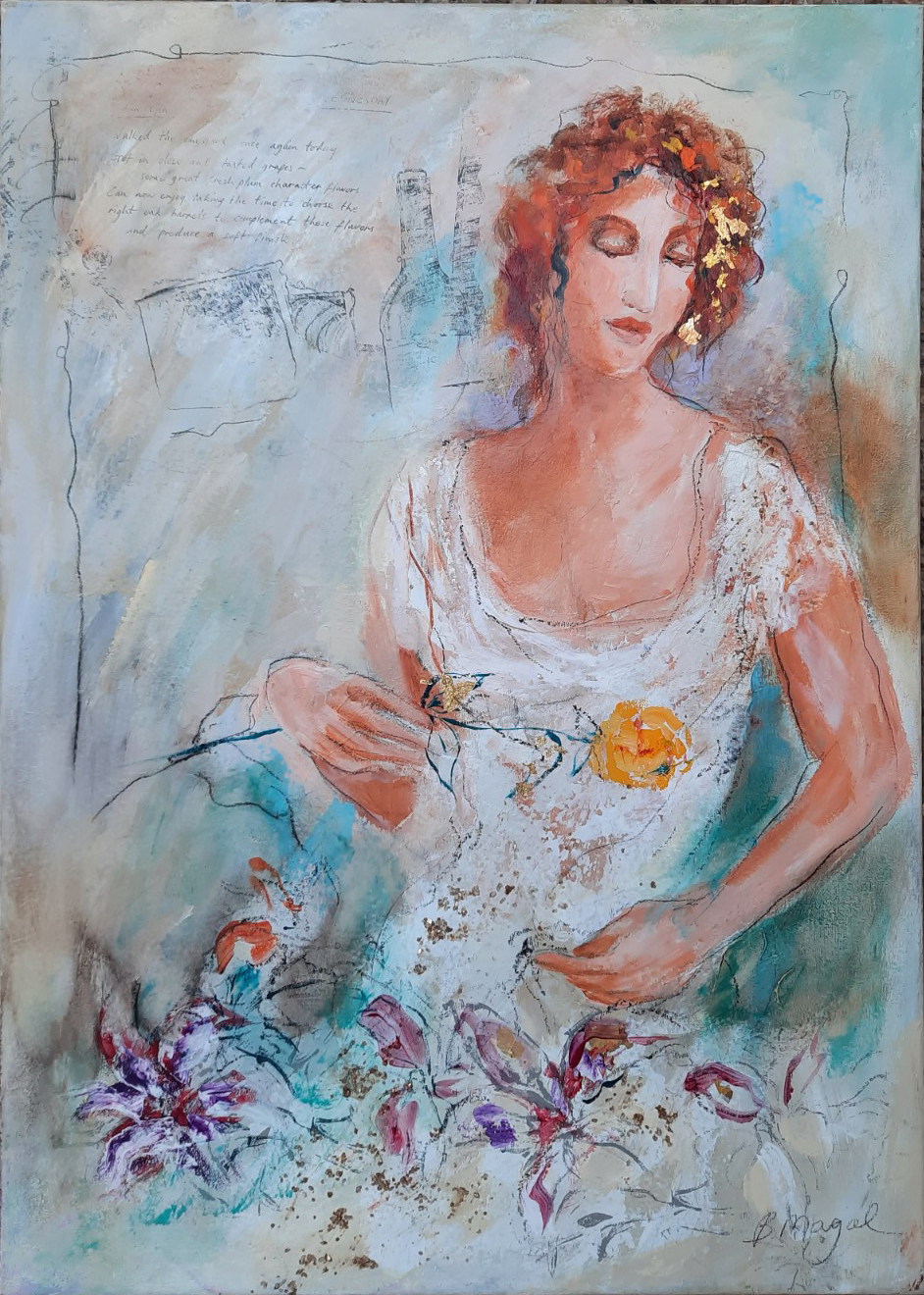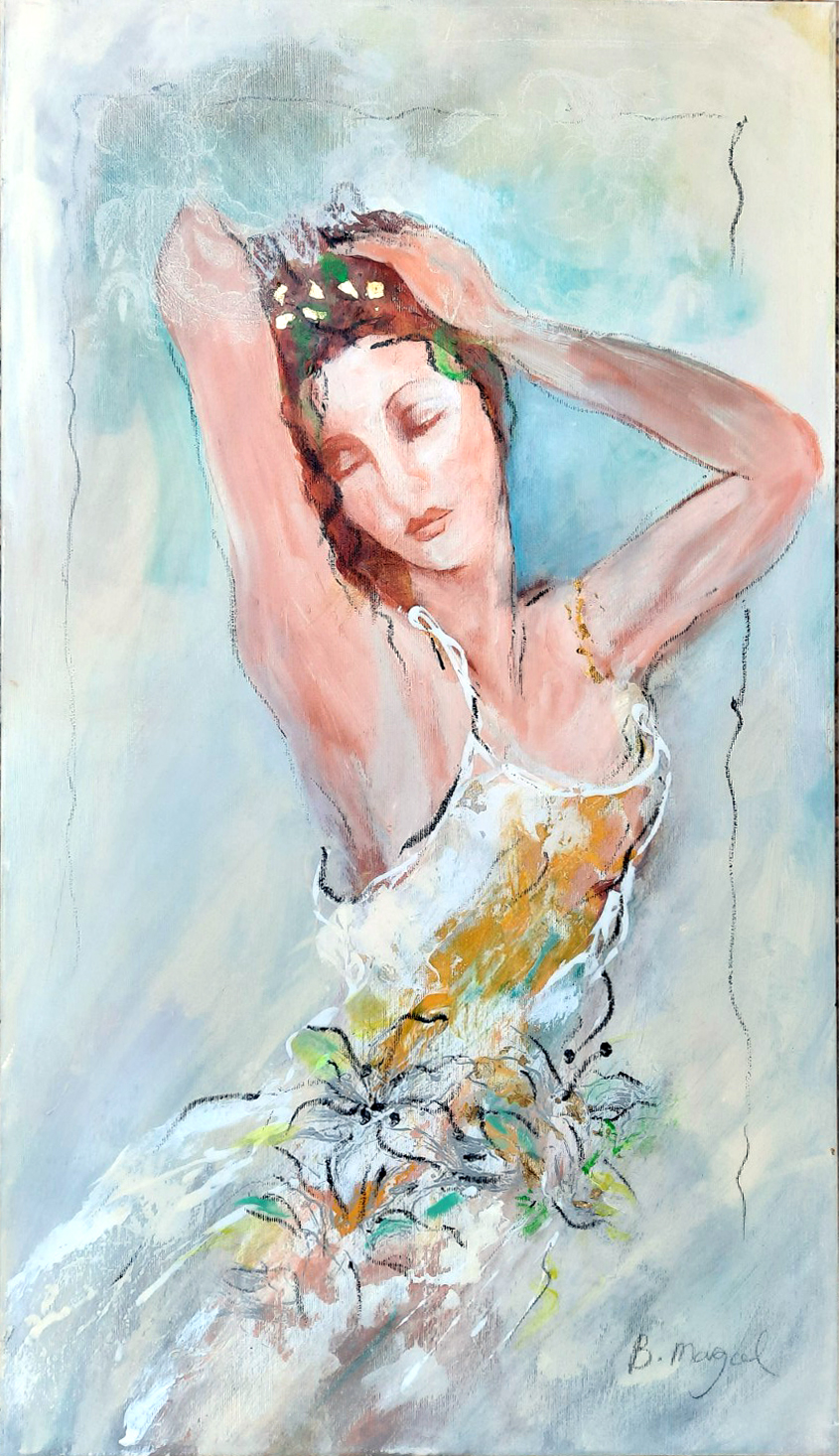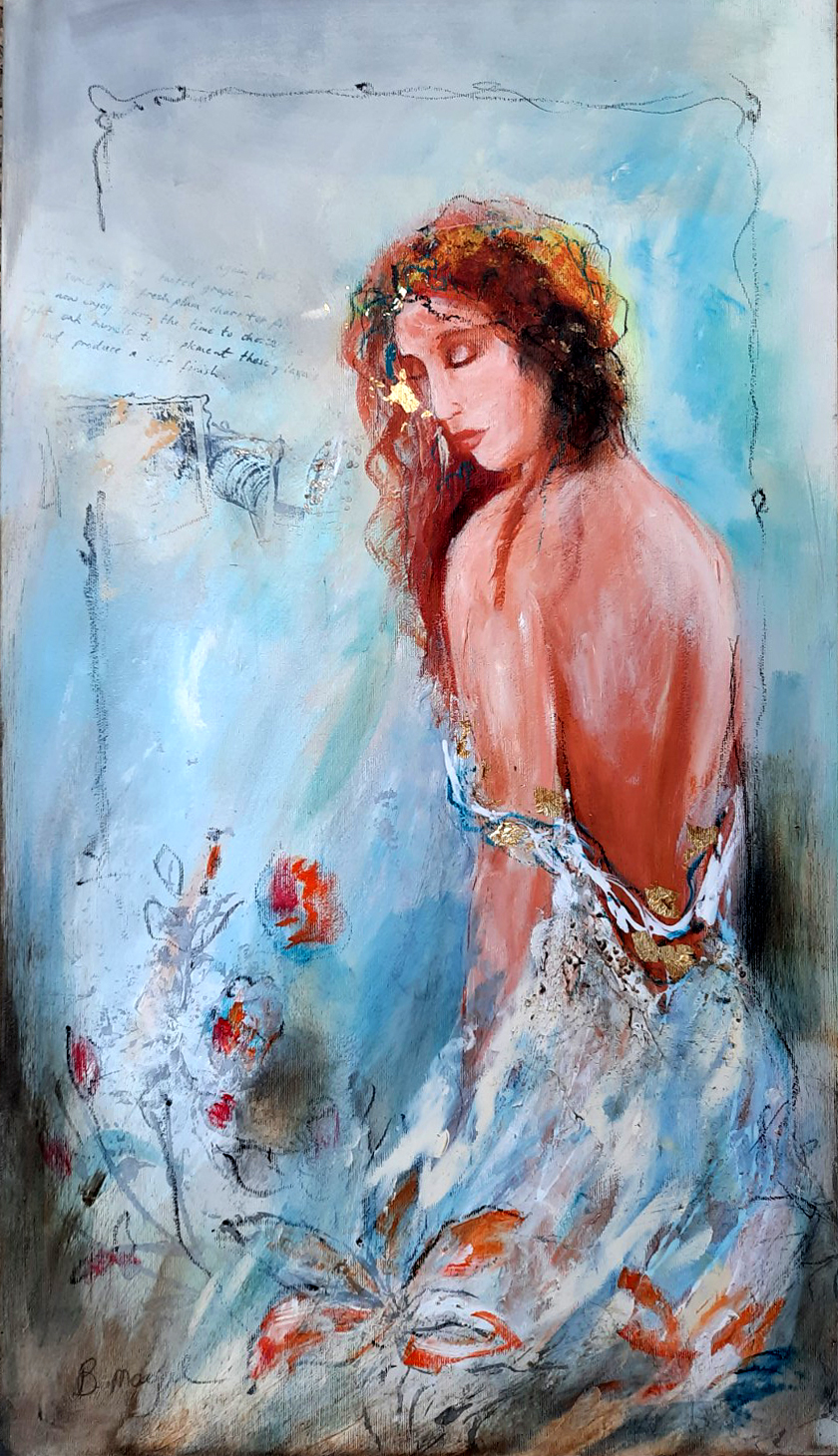Batya Magal

Magal Batya
M-5
$900
31.5 inches x 31.5 inches high 80cm wide x 80 cm high Oil on Canvas 2016
Shipping & Handling: $30
Batia Magal was born in Israel in 1953. From childhood onwards, she displayed a marked talent for drawing and an all-embracing interest in art. It is therefore not surprising that after finishing high school, she was accepted as a student at the Avni Art Institute, where she came under the tutelage and influence of such well-known artists as Streichman, Wexler, Be’eri and Propes.
Her work seems to have developed along various lines, all of which converged and fused into a very personal and feminine statement. The basic calligraphic drawing of the female figure or flower filled vase is the centerpiece which forms the structural base of the work, to which the brilliant washes of lively colors act as a counterpoint, with the deeper and warmer hues evoking the luminosity of medieval stained-glass windows. More recently, yet another intriguing factor has been added by the introduction of fabric textures and prints of a seemingly unconnected nature, forming collages in which the three elements of drawing, color and print or fabric texture, maintain a balance which tends to emphasize the works’ structural composition.
Of her work, Batia Magal says: “A real celebration is taking place in the bistros. A mixed gallery of characters changes in front of my eyes, and spontaneous compositions are created as if by themselves. Lately, I find myself wandering in the countryside, looking for various angles for working outside, to implement my own special techniques in order to create my own point of view of the landscape”

Magal Batya
M-7
$900
19.75 inches x 27.5 inches high 50cm wide x 70 cm high Oil on Canvas 2016
Shipping & Handling: $30
Batia Magal was born in Israel in 1953. From childhood onwards, she displayed a marked talent for drawing and an all-embracing interest in art. It is therefore not surprising that after finishing high school, she was accepted as a student at the Avni Art Institute, where she came under the tutelage and influence of such well-known artists as Streichman, Wexler, Be’eri and Propes.
Her work seems to have developed along various lines, all of which converged and fused into a very personal and feminine statement. The basic calligraphic drawing of the female figure or flower filled vase is the centerpiece which forms the structural base of the work, to which the brilliant washes of lively colors act as a counterpoint, with the deeper and warmer hues evoking the luminosity of medieval stained-glass windows. More recently, yet another intriguing factor has been added by the introduction of fabric textures and prints of a seemingly unconnected nature, forming collages in which the three elements of drawing, color and print or fabric texture, maintain a balance which tends to emphasize the works’ structural composition.
Of her work, Batia Magal says: “A real celebration is taking place in the bistros. A mixed gallery of characters changes in front of my eyes, and spontaneous compositions are created as if by themselves. Lately, I find myself wandering in the countryside, looking for various angles for working outside, to implement my own special techniques in order to create my own point of view of the landscape”

Magal Batya
M-9
$900
15.75 inches x 27.5 inches high 40cm wide x 70 cm high Oil on Canvas 2016
Shipping & Handling: $30
Batia Magal was born in Israel in 1953. From childhood onwards, she displayed a marked talent for drawing and an all-embracing interest in art. It is therefore not surprising that after finishing high school, she was accepted as a student at the Avni Art Institute, where she came under the tutelage and influence of such well-known artists as Streichman, Wexler, Be’eri and Propes.
Her work seems to have developed along various lines, all of which converged and fused into a very personal and feminine statement. The basic calligraphic drawing of the female figure or flower filled vase is the centerpiece which forms the structural base of the work, to which the brilliant washes of lively colors act as a counterpoint, with the deeper and warmer hues evoking the luminosity of medieval stained-glass windows. More recently, yet another intriguing factor has been added by the introduction of fabric textures and prints of a seemingly unconnected nature, forming collages in which the three elements of drawing, color and print or fabric texture, maintain a balance which tends to emphasize the works’ structural composition.
Of her work, Batia Magal says: “A real celebration is taking place in the bistros. A mixed gallery of characters changes in front of my eyes, and spontaneous compositions are created as if by themselves. Lately, I find myself wandering in the countryside, looking for various angles for working outside, to implement my own special techniques in order to create my own point of view of the landscape”

Magal Batya
Memories of Love
$800
15.75 inches x 27.5 inches high 40 cm wide x 70 cm high Oil on Canvas 2016
Shipping & Handling: $30